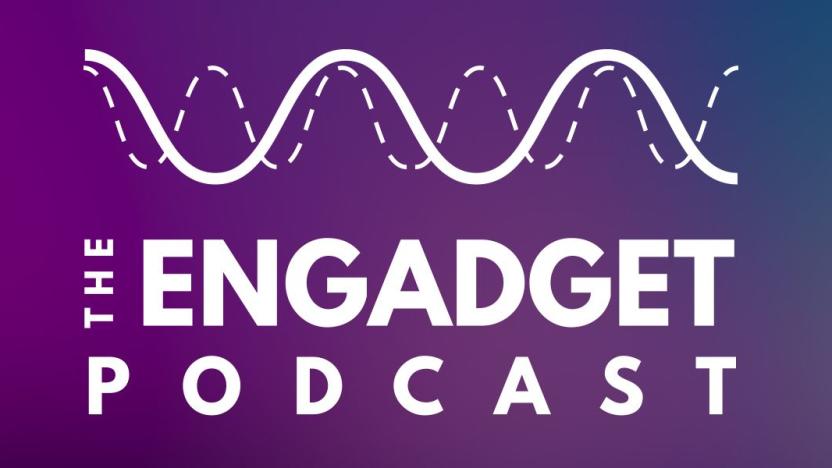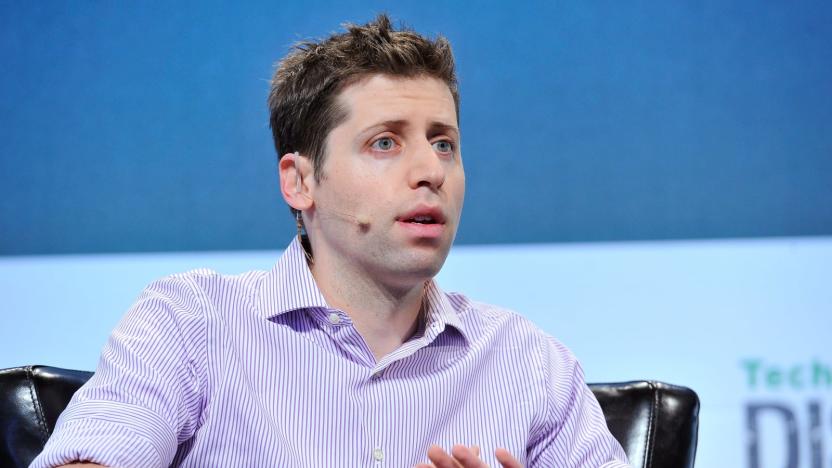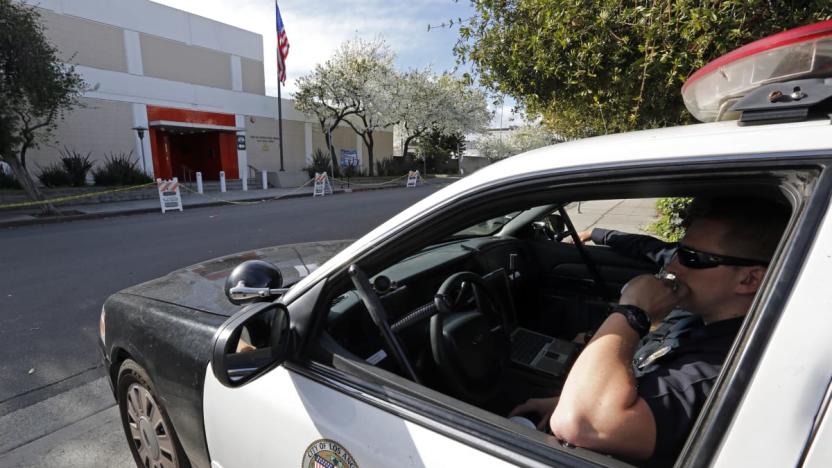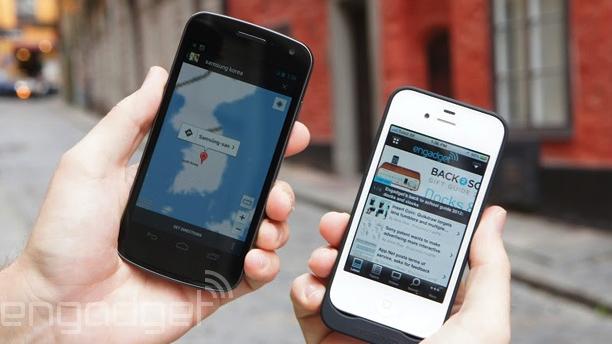ACLU
Latest

The Engadget Podcast Ep 27: American Tune
Managing editor Dana Wollman and reviews editor Cherlynn Low join host Terrence O'Brien to discuss the biggest tech news of the week. First they'll debate OnePlus' benchmark scandal, then try to sort out why the ACLU is partnering with startup incubator Y Combinator and take the "artists" behind the Tinder for baby adoption Kickstarter to task. Finally it's another week of Trump talk as the panel addresses the impact of the recent immigration ban on the tech industry and how the political climate is impacting our social media habits.

Game developers take a stand against Trump's immigration ban
The opposition to the Trump administration's immigration ban has spread far and wide. Video game developers are joining the chorus against what some see as an unconstitutional policy put forth with no thought or consideration of the outcome. For a number of studios, that means making donations to the American Civil Liberties Union (ACLU), the non-profit organization that successfully challenged the ban in court over this past weekend.

ACLU signs on with Y Combinator after $24 million donation
The ACLU, in an average year, fundraises around $4 million. After stridently opposing Trump's unconstitutional immigration ban last weekend, the civil liberties watchdog was rewarded by the American public with a windfall of donations totalling $24 million -- six times its average annual income. On Tuesday, startup accelerator Y Combinator announced that the ACLU is enrolling as part of its Winter 2017 class to figure out how to best utilize this monetary windfall.

Lyft donates to the ACLU in response to Trump's immigration ban
More than a few tech companies have voiced opposition to President Trump's Muslim-focused immigration ban, but Lyft is going the distance by making a firm financial commitment. The ridesharing outfit has promised to donate $1 million to the American Civil Liberties Union over the next four years in a bid to "defend our Constitution." Trump's policy goes against both Lyft's inclusive beliefs and the "nation's core values," the company says, and the team "will not be silent" on issues like this.

Twitter says no to law enforcement protest policing tool
Twitter has cut off access for a tool that law enforcement was using to monitor the social network for protest-specific keywords. Those included "Mikebrown," "Blacklivesmatter" and "imunarmed" according to documents obtained by The Daily Dot. Media Sonar has been selling social media surveillance software to police departments for thousands of dollars. Twitter, for its part, cut off the firm's API keys in October and has vowed to terminate Media Sonar's attempts at making more.

ACLU and Amnesty International ask Obama to pardon Snowden
The American Civil Liberties Union and Amnesty International, two of the highest-profile human rights organizations in the United States, are calling for President Obama to grant clemency to Edward Snowden. The "Pardon Snowden" campaign kicks off today with a petition to "let President Obama know that the American people stand with Snowden." It's seeking 60,000 signatures and is hosted by the ACLU, which has signed on as Snowden's legal adviser.

ACLU sues US over law limiting data discrimination studies
It's no secret that algorithms can be biased against certain demographics, but the American Civil Liberties Union wants more proof -- and it's willing to go to court to get it. The organization has sued the US in the belief that the Computer Fraud and Abuse Act prevents studies on algorithm-powered discrimination, allegedly violating free speech rights. As the Act makes it a crime to violate a website's terms of service, the ACLU claims, it's frequently impossible to comb through publicly available site data that would reveal racism, sexism or other biases in the code. That, in turn, hampers researchers and journalists (the ACLU is representing The Intercept's publisher in this case) who want to expose illegal behavior.

The Feds are demanding that Google unlock phones as well
The American Civil Liberties Union (ACLU) compiled and released a map of where the federal government is currently taking Apple, Google -- and in some cases, both -- to court in order to compel the companies to unlock a suspect's phone. There are reportedly 70 cases in which federal prosecutors have invoked the All Writs Act, according to court records from October. The ACLU managed to turn up 63 of them -- nine of which targeted Google; the rest, Apple.

16 states unveil privacy protection measures
While US lawmakers and Congress beg tech companies to give them encrypted user data access, many states are going in a different direction. With help from the American Civil Liberties Union (ACLU), sixteen of them including New York, Alabama, Illinois and Alaska are launching bills to protect residents' private data. The proposed laws differ from region to region, but focus on several areas. Most states want to prevent schools from gathering private student data, and Hawaii wants to ban employers from accessing workers' private social media info. Other measures are aimed at limiting "stingray" cellphone snooping and license plate data collection.

Judge dismisses Wikimedia case against NSA as 'hypothetical'
Remember that lawsuit the Wikimedia Foundation filed against the NSA earlier this year? It's not moving forward: The district judge presiding over the case has dismissed the lawsuit because the plaintiffs' allegations are based on "suppositions and speculation with no basis in fact." Specifically, District Judge TS Ellis III takes issue with Wikimedia's description of how the NSA's Upstream surveillance program works, which speculates on how the program "must" operate to satisfy the government's "stated goals," but provides no factual data to verify said claims.

LAPD's body cameras roll out Monday, but footage won't be public
Come Monday the Los Angeles Police Department begins its deployment of body cameras for officers. The initial rollout is limited -- only 860 of the proposed 7,000 cameras will hit the streets at first -- and the SWAT team won't get them until sometime after mid-September, according to The Los Angeles Times. The LAPD "doesn't plan on" making the recordings public unless a criminal or civil court case attached to them, though. The American Civil Liberties Union says that this blanket refusal to make all captured video public means that police departments can cherrypick what footage they do choose to distribute and essentially use it as PR for good deeds while keeping less-than-applause-worthy footage out of the limelight. Of course, one way around that would be setting up a YouTube channel like Seattle did, but that brings about its own set of critics. [Image credit: Associated Press]

California ACLU chapter unveils police-monitoring video app
In an effort to reduce police abuses that have occurred with frightening regularity throughout the US, the Southern California branch of the ACLU has just released a new smartphone app designed to securely record your next interaction with law enforcement. Sure, you could simply snap photos and take video using your onboard camera. But what happens when the cop smashes your phone (as one did in South Gate, California) or tries to delete the data (as another attempted in Virginia Beach, Virginia)? Instead of simply saving a copy to your local drive, the Mobile Justice CA app automatically forwards a copy of your video directly to the ACLU for review. Not only that, but it also alerts nearby users that also have the app installed that an incident is going down. The app is available on both iOS and Android, but is only for California residents. ACLU chapters in Oregon, Missouri and New York have already released similar apps.

Most of the government's anonymous tiplines aren't secure
When it comes to whistleblowing, privacy is paramount -- just ask Edward Snowden. It's also why news from an American Civil Liberties Association report (PDF) about anonymous government tiplines not using HTTPS encryption is all the more alarming. In a letter to Tony Scott -- not the late filmmaker, the United States chief information officer -- the ACLU's Michael W. Macleod-Ball and Christopher Soghoian implore the government to fast-track efforts to swap the some 29 websites that are required by law to protect the anonymity of tipsters over to HTTPS. If that can't happen immediately (Scott has a two-year plan to encrypt all government websites) then the ACLU suggests allowing people to use the Tor browser for alerting the authorities about fraud or waste in the interim. Currently, the anonymity-minded browser is blocked by certain federal agency websites.

The CIA is giving its surveillance tech to US law enforcement
The Justice Department's newest electronic dragnet--plane-mounted "dirtboxes" that can slurp thousands of cellular phone ID's from the air -- was originally developed by the CIA to hunt terrorists in the Middle East, The Wall Street Journal reports. Now however, it's being used domestically to track American citizens. That's not good.

Wikimedia is suing the NSA over its mass surveillance program
The Wikimedia Foundation is suing the US National Security Agency (NSA) for breaching Wikipedia users' privacy with mass surveillance techniques. It said that the aim of the suit is to "end (the NSA) mass surveillance program in order to protect the rights of our users around the world." The group maintains that the agency overstepped the limits set by the authority of the 2008 Foreign Intelligence Surveillance Act (FAA) amendments. It'll file the complaint in conjunction with eight other organizations -- including Amnesty International USA, Human Rights Watch and the National Association of Criminal Defense Lawyers -- and will be represented by the American Civil Liberties Union (ACLU).

The ACLU and the NSA's ex-director will debate spying on June 30th
If you've wanted the NSA and anti-spying campaigners to sit down and hash things out, you're about to get your wish... well, sort of. MSNBC is holding a surveillance-themed debate between former NSA head Gen. Keith Alexander and ACLU Executive Director Anthony Romero on June 30th. When the two sides meet at 10:30AM Eastern that day, they'll argue over whether or not the NSA is making Americans safer; suffice it to say that there are going to be some fierce disagreements.

Court rules collecting cellphone location without a warrant violates the Fourth Amendment
Quartavious Davis was sentenced to nearly 162 years in prison, without the possibility of parole, for a string of armed robberies in the Miami area several years ago. After having his day before the Court of Appeals for the 11th circuit, much of that severe punishment stands. Davis will likely continue his battle to have his conviction overturned or his sentence reduced, but his case has already struck one victory for privacy advocates. The decision handed down by the judges today marks the first time that cell phone location data has been explicitly included as part of a reasonable expectation of privacy under the Fourth Amendment.

Over 200 NSA documents collected and made searchable, from Snowden to Prism
When Edward Snowden made a name for himself last June by leaking classified NSA information, he did so by working with The Guardian and a documentary filmmaker. As such, the public learned of much of the NSA's surveillance measures through the medium of a single media outlet. In the ensuing months, much more has come to light, and today the American Civil Liberties Union is unveiling "NSA Documents Database," a searchable, categorized database of just over 200 previously classified NSA documents. That includes everything from the initial Snowden leaks through Mystic (and more). The collection comprises "all of the documents released since [June 5, 2013], both by the media and the government," and the ACLU promises more documents will be added as they become available. In so many words, if you're looking to dig in and bone up on the current government surveillance debate, this is gonna be your jam.

Snowden says encryption and oversight are key to protecting the public from surveillance
Speaking to a packed exhibit hall through a Google Hangout, Edward Snowden said the keys to protecting the public from government surveillance is encryption and civilian oversight. The world's most famous whistleblower has said it before, but reiterated it for the SXSW crowd, that end-to-end encryption would go a long way towards protecting user data from both spying and attackers. Many current communications systems, like the aforementioned Hangout, encrypt data at either end, but companies often decrypt your information in between because it needs to harvest data in order to serve up ads. If communications are encrypted the entire time, mass surveillance of the sort that the NSA has engaged in becomes extremely difficult and prohibitively expensive. Of course, if you're a target of the NSA, encryption won't be able to protect you. However, breaking through those protections would require a much more targeted attack, rather than a broad collection of data.

Watch Edward Snowden's SXSW virtual conversation right here (updated)
At SXSW today, NSA whistleblower Edward Snowden will make his "first appearance front of a live audience" since he unveiled the under belly of the government surveillance program. Snowden will speak with the ACLU's Ben Wizner and Christopher Soghoian, but as the name suggests, this is a virtual conversation and he will not be appearing in person for the festivities in Austin. The ACLU is liveblogging the entire affair here at 12PM ET and a livestream will be posted over at The Texas Tribune. If you miss out on the live coverage, the ACLU will post a video of the interview afterwords. Update: We've embedded the livestream after the break. Update 2: Well, things have wrapped up, but you can relive the conversation after the break.








